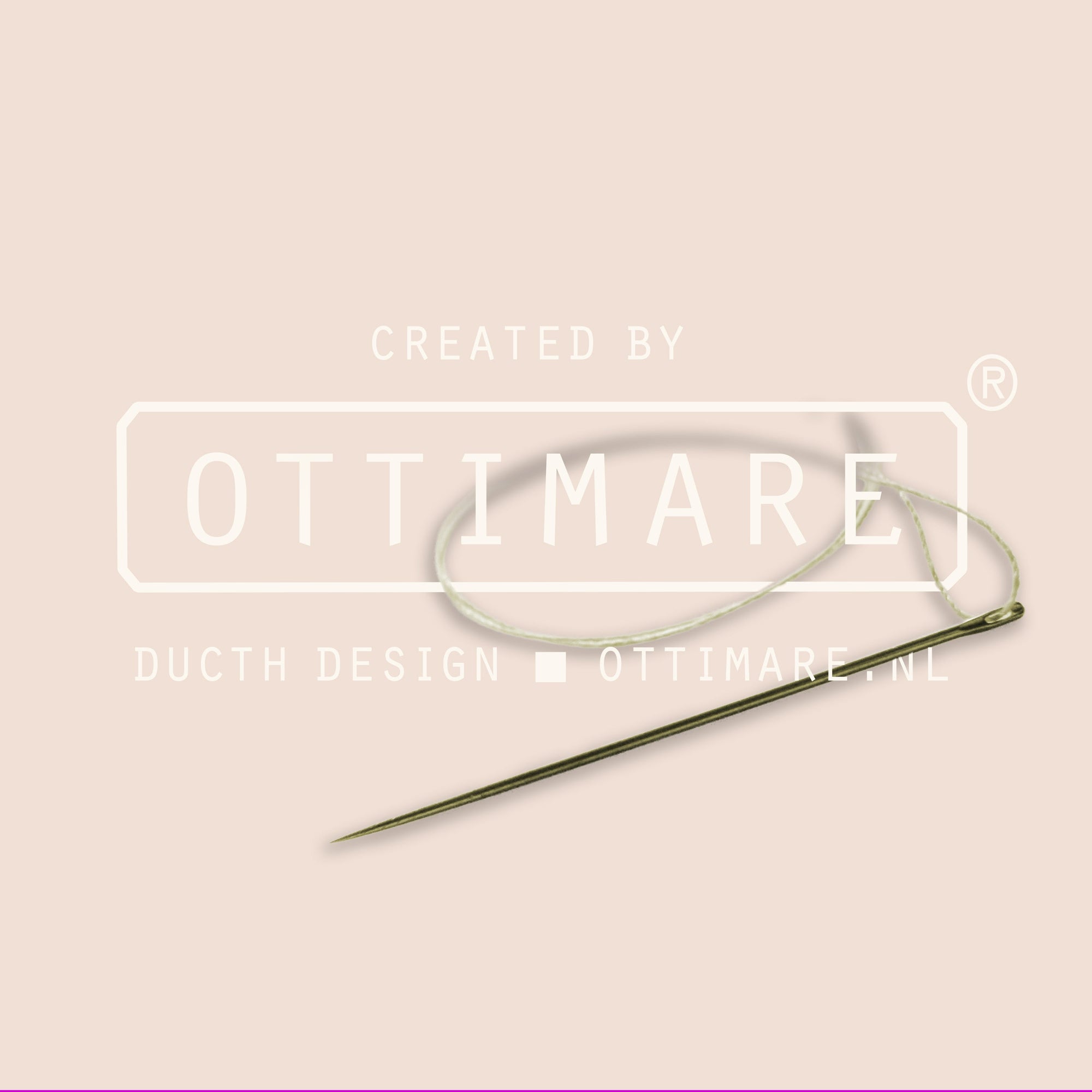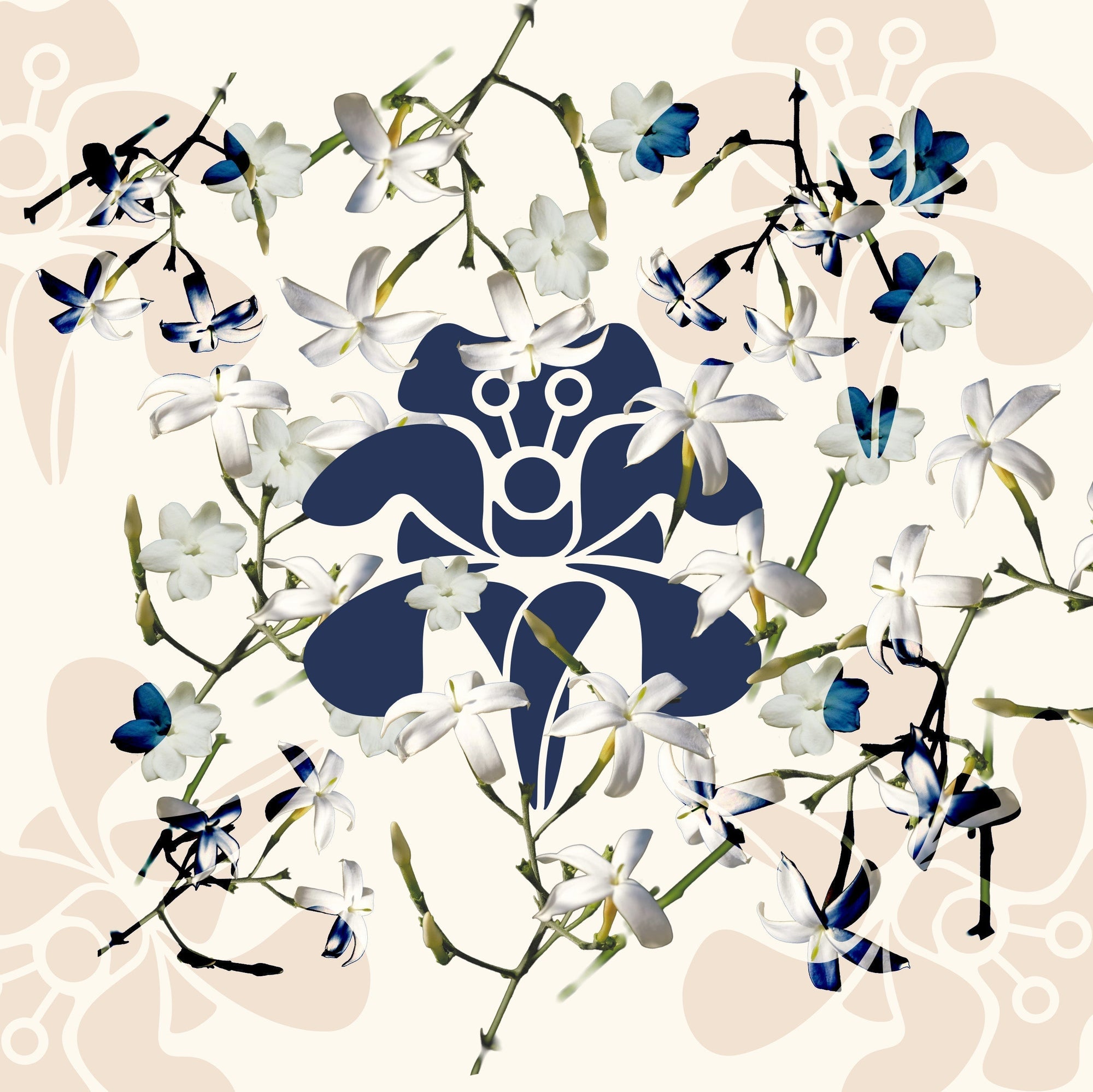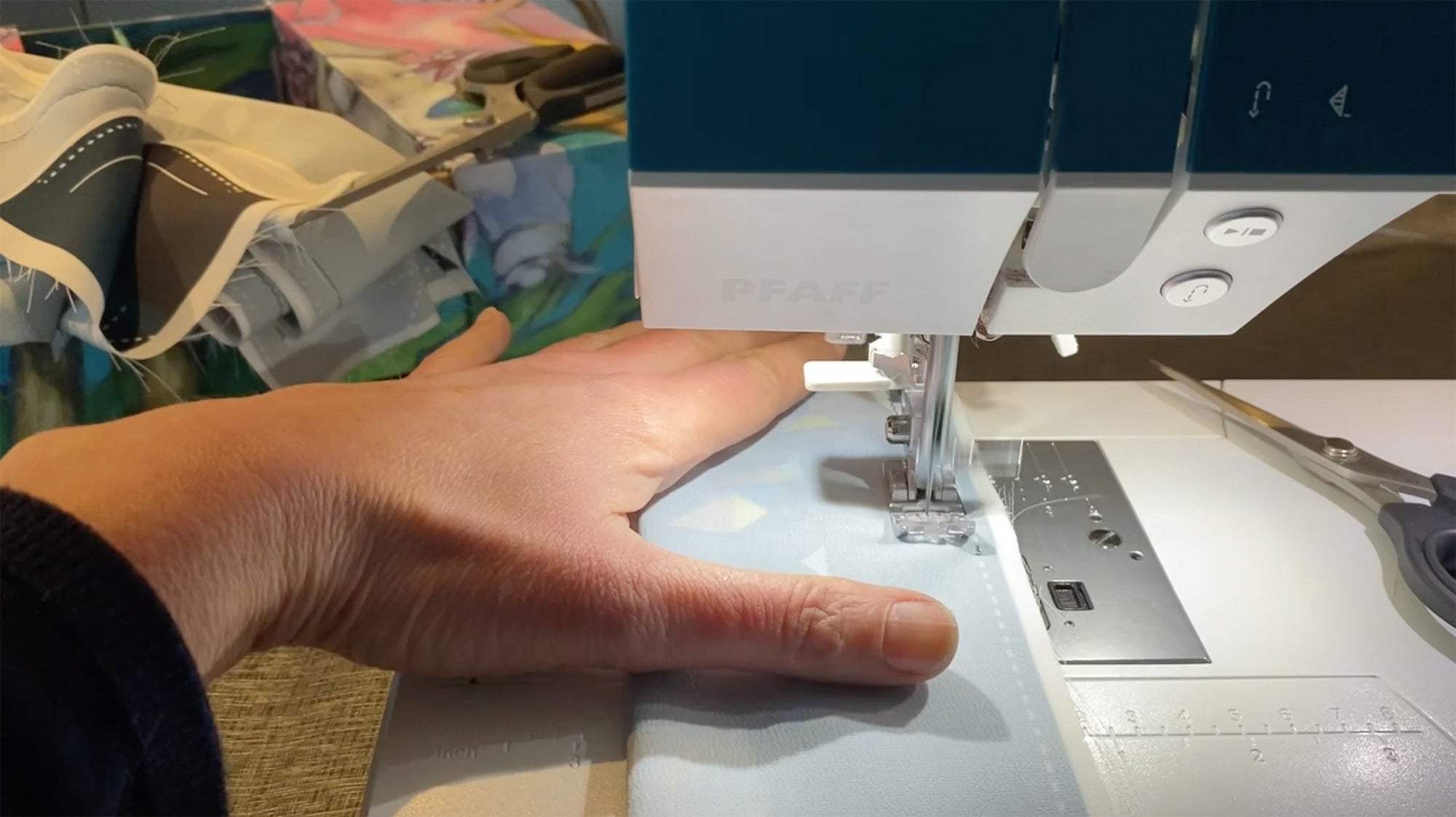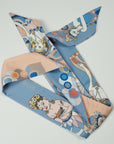
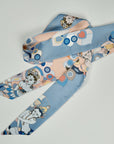
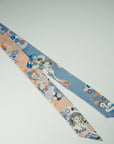
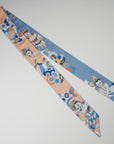
Long Satin Cravate Woman's Scarf - Thangka Dancers
Celestial blue & Apricot
On this cheerful extra long satin woman's scarf Ottimare added two extra dancers to increase the festive spirit. Due to the extra length this heavy satin cravate scarf can be tied in many ways.
The extra length of this scarf allows you to wrap it around your neck twice and end with an elegant knot. Or you can wrap it around once and finish with a generous bow. The scarf has two different sides, making this beautiful accessory a multi-use item.
- Handmade in the Netherlands
- Ecological satin
- Dimensions: 6,75 x 150 cm (2,6 x 59 inch)
- This satin scarf is available in several colors.
- This Ottimare scarf has two sides. An apricot side and a celestial blue one. In the small details some extra colors were added like bright orange, yellow, red and golden brown.
Payment methods
By card: Visa®, MasterCard®, American Express®, Carte Bancaire®, Maestro®
By PayPal®
By using your own banking environment iDeal (NL) or Bancontact (BE)
Good to know:
Ottimare uses Payment Service Provider Mollie for save transactions.
Shipping & returns
See the FAQ for details on shipping methods, costs, delivery times and our return policy.
About
the design









